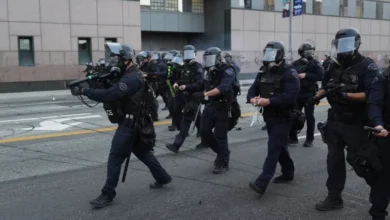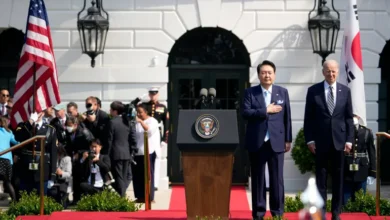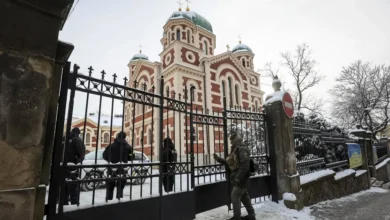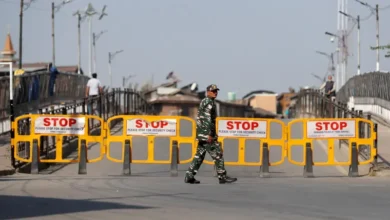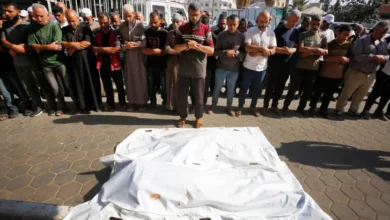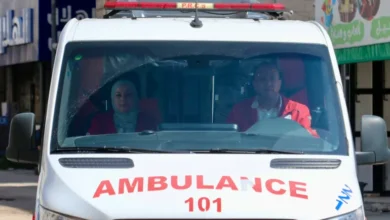‘We share with rats’: Neglect, empty promises for S African hostel-dwellers
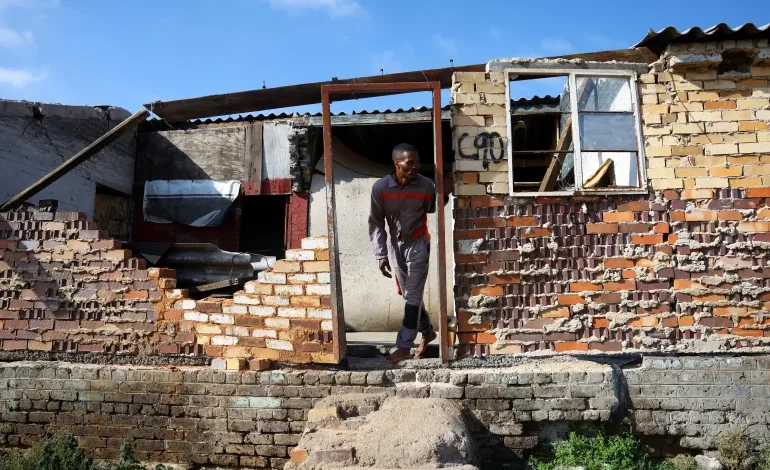
On a chilly afternoon in Soweto, Mlindelwa Mtungwa, 61, cooks in his tiny, dimly lit room at the Diepkloof hostel, using a small two-plate stove connected to an electricity source outside.
The father of six from Msinga village in KwaZulu-Natal (KZN) province moved to South Africa’s economic hub in 1979 in search of a better life, settling at the hostel some 14km (9 miles) south of the city centre. He has lived there ever since.
Gently turning pieces of chicken in a pot, he recalled with surprising fondness how orderly the strict, male-only dormitories were when they were run by the repressive apartheid government and how jobs were abundant, helping him pay rent and send money back home.
“Even though we were oppressed by the system, we had jobs. The hostel had electricity, flushing toilets and showers that had warm water,” he said, lamenting how many of those basics are unobtainable today.
Hostels were first introduced on the mines, and later townships like Soweto, as a place to house Black men from rural parts of the country who provided a cheap source of labour under apartheid.
But by 1994 – when white minority rule relinquished power and the country elected its first multiracial government – the nature of these spaces had begun to change.
South Africa was free and accessible to all. With that came a mass influx of people into cities and townships. However, despite the political gains, service delivery has not kept up with the needs of the population, state corruption and mismanagement thrive, and many promises remain unfulfilled.
The Diepkloof hostel, like many others, has suffered neglect and deterioration. Today, the sprawling blocks, built in the 1970s, are dilapidated with broken windows and leaking roofs. Poverty, unemployment, crime, teen pregnancies, and alcohol and drug abuse are also rife.
‘As good as dead’
Last month, angered by the lack of basic services, hostel residents went out in protest – blocking major roads, including two highways, with burning tyres and rocks.
“The strike is about the rebuilding and fixing of the hostel houses that the premier of Gauteng [Panyaza Lesufi] has long promised to deliver on but failed,” said the hostel izinduna, or community leader, Sbongiseni Khoza.
“The truth is these hostel houses are as good as dead.”
Despite recent strides – including the provision of water from easily accessible nearby taps, an improvement on the far-flung communal taps used previously, and last year’s reinstallation of legal electricity connections – grievances about the living conditions persist.
“When we [izindunas] looked at the original toilet pipes underground, we found them to be in good condition but I don’t understand why they are not being fixed,” Khoza said, suspecting corruption is the reason those in charge have not improved sanitation and fixed the troubling bucket toilet system.
“The bucket toilets are bad and the smell is terrible,” said Thandeka Zondi, a resident of Diepkloof hostel, standing in the shared kitchen she uses. “It’s easy to be infected with transmittable diseases such as lice.”
The mother of five is gravely concerned about the unhygienic facilities that are shared with more than 30 people and emptied only twice a week and is pleading for flushing toilets so women and girls do not fall ill.
Khoza cautions that a lot could have been improved if the government was serious about service delivery in hostels but said there is no political will. This has left residents with no choice but to go to the streets to vent their frustrations, and they have decided to continue if their demands are not met.
Apartheid-era hostels
In Johannesburg, hostels are synonymous with the apartheid-era migrant labour system, which brought Black men from rural communities to work in the cities but refused to allow them to bring their families or ever build a real home.
In that way, hostels also fomented divisions within the townships – the designated Black residential areas that were located far from the areas white people inhabited.
As transit camps, hostels offered affordable accommodation for workers. But the male-only spaces were incongruous with the townships inhabited by families and existing communities – meaning hostel-dwellers were never properly integrated into township life.
In the 1980s and 90s, during the transition from apartheid to democracy, tensions between the two groups escalated violently.
The African National Congress (ANC) – the then-liberation movement that would become the governing party in 1994 – was trying to build support in KZN, where the opposition Inkatha Freedom Party (IFP) had its base. Violence erupted and soon spread to Johannesburg and surrounding areas, where hostel-dwellers – who were mainly migrants from KZN loyal to the IFP – squared off against ANC-supporting township residents.

